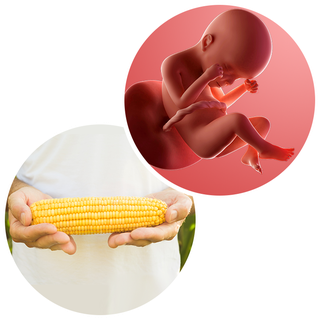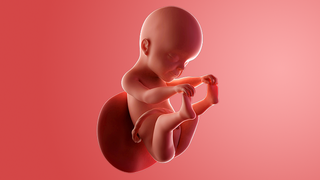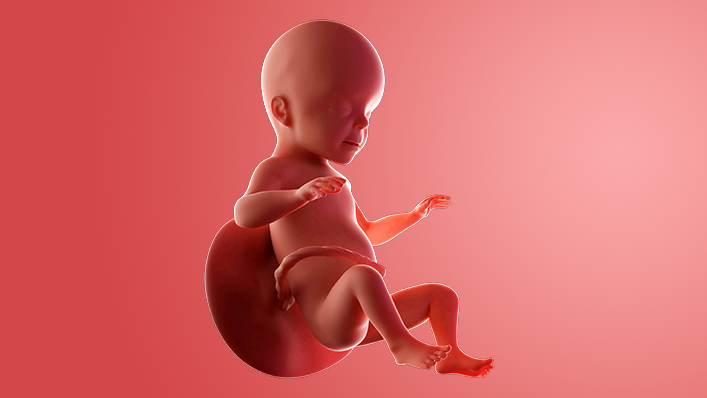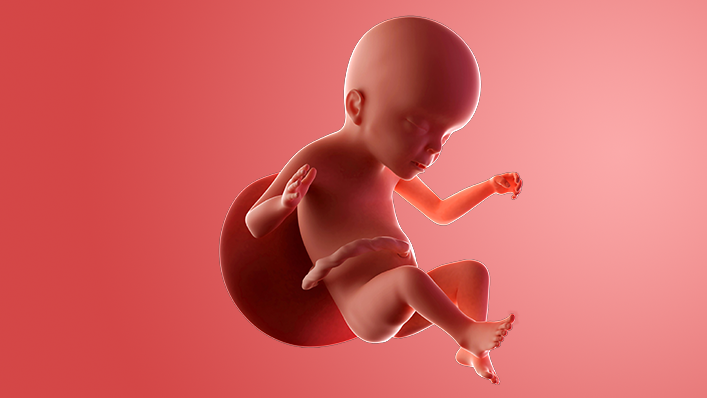What's happening in my body?
You may start to feel really hungry, there is no need to eat any more until the 3rd trimester of your pregnancy (week 28 onwards).
You're likely to be putting on weight, but do not worry if you can barely see your bump, as every pregnancy is different.
Whooping cough vaccination
Have you had the whooping cough vaccine? It's usually offered to pregnant women at around week 20 but you can have it from week 16 to week 32.
Whooping cough is on the rise – but you can protect your baby from this dangerous condition by having a vaccination. If you have not had it yet, speak to your midwife or a GP.
Read more about whooping cough vaccination in pregnancy on NHS.UK.
Alcohol
It can be hard to give up alcohol, but remember:
- alcohol goes to your baby
- the risks for your baby include miscarriage, premature birth, low birth weight, learning difficulties and behavioural problems
If you would like some help or advice, ask your midwife or doctor.
Read NHS guidance about the effect of drinking alcohol while pregnant.
2nd trimester pregnancy symptoms (at 24 weeks)
Week by week, you may be developing various new symptoms.
Around now, you could be getting pains around your ribs, back, breasts, bottom, stomach, etc. This is partly due to your pregnancy hormones loosening up your ligaments and muscles, and your growing baby pushing on various parts of your body.
This week, your signs of pregnancy could include:
- tiredness and sleeping problems (week 19 has information about feeling tired)
- stretch marks (read about stretch marks on week 17's page)
- swollen and bleeding gums (week 13 has information about gum health during pregnancy)
- pains on the side of your baby bump, caused by your expanding womb ("round ligament pains")
- piles (read about piles on week 22's page)
- headaches
- backache
- nosebleeds
- indigestion and heartburn (week 25 talks about digestive problems)
- bloating and constipation (read about bloating on week 16's page)
- leg cramps (week 20 explains how to deal with cramp)
- feeling hot
- dizziness
- swollen hands and feet
- urine infections
- vaginal infections (see week 15 for vaginal health)
- darkened skin on your face or brown patches – this is known as chloasma or the "mask of pregnancy"
- greasier, spotty skin
- thicker and shinier hair
You may also experience symptoms from earlier weeks, such as:
- mood swings (week 8's page has information on mood swings)
- morning sickness (read about dealing with morning sickness on week 6's page)
- weird pregnancy cravings (read about pregnancy cravings on week 5's page)
- a heightened sense of smell
- sore or leaky breasts (read about breast pain on week 14's page) - a white milky pregnancy discharge from your vagina and light spotting (seek medical advice for any bleeding)
What does my baby look like?
Your baby, or foetus, is around 30cm long from head to heel. That's approximately the size of a corn on the cob.
Everything is in proportion, but your baby is smaller than a baby who's been in the womb for longer.
If your baby was born now, there is a chance they will survive outside the womb. Baby units for premature babies (called neonatal units) can help them breathe, feed, keep warm and fight infections.

Action stations
Have you thought about writing a birth plan yet? This sets out what you would ideally like to happen during the birth and after your baby is born.
Find out how to make a birth plan and download a birth plan template. Talk to your partner, family, midwife or doctor.
This week you could also…
More in week-by-week

Week 25
Welcome to week 25! You'll need to tell your employers now, if you have not already, so that you can get maternity pay and benefits.
More in week-by-week guide to pregnancy


